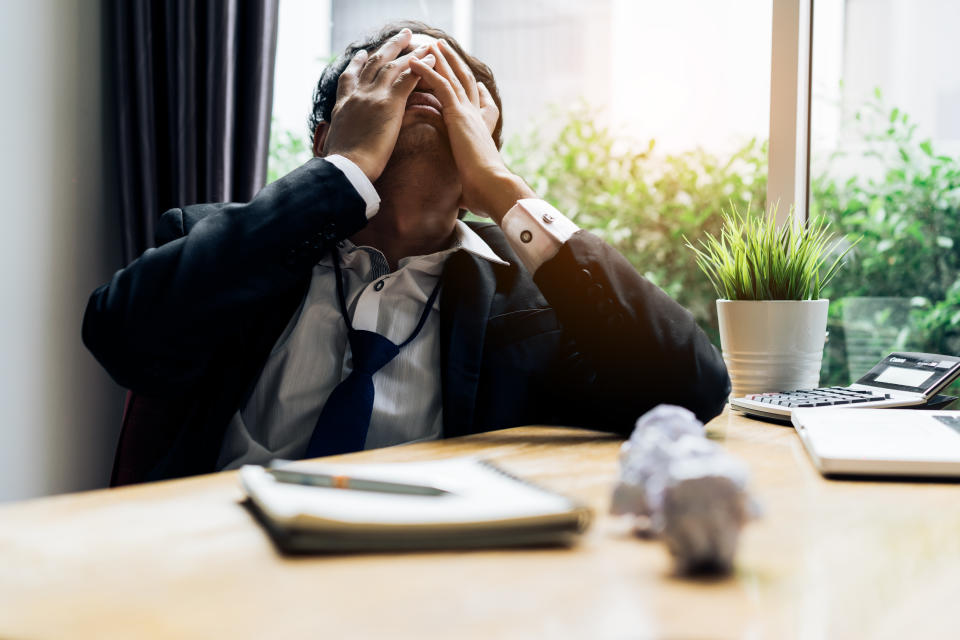Study finds the precise time of the day when productivity slump hits

It’s official: 14.17 is the afternoon slump, when more than a third of Brits start to experience that dreaded drowsy feeling daily.
Despite the slump falling after lunch, according to the research by Pro Plus, less than one in 10 believe a full tummy is to blame, with the top reasons causing drowsiness revealed as depleted energy levels, lack of sleep and stress.
Feeling tired all the time can start to affect our mood and have an impact on quality of life.
The majority of respondents said that irritability is the worst result of the daily energy slump, with productivity at work suffering for over a third.
READ MORE: What You Need to Know About the Productivity Slump
A quarter of people admitted to making mistakes, and 22% said they feel grumpy during the slump.
Poor quality, disturbed or reduced sleep is one reason that we feel energy slumps. Forty per cent of those surveyed attribute fatigue to poor quality sleep; 38% say it’s a lack of sleep; 34% say that they feel tired because they woke up too early; while a third admit they stayed up too late the night before.
But while sleep is important to maintaining consistent energy levels throughout the day, it’s not the only reason that fatigue can set in. Stress is a major factor in feeling fatigued, (48%) ahead even of life-changing events such as having a baby and moving to a new house.
READ MORE: Tired? Try Doing This Move for Six Minutes
This is closely followed by the short, dark days and cold of winter (40%), excessive working hours (31%) and travelling (31%).
Long working hours and a heavy workload are to blame for causing tiredness to almost half (47%) of British employees.
About 44% per cent of those surveyed said that they had no time to relax or unwind. Unfortunately, feeling tired is far from rare, with the same amount of people feeling that they spend four to 10 hours a week feeling drained.
READ MORE: Tired? Here's How To Feel Better Physically
Nick Littlehales, Elite Sport sleep coach, said: “Sleep is an important health pillar, which enables us to eat well, exercise well and recover well. Daytime slumps are a completely natural form of recovery; afternoon fatigue develops because we try to recuperate in one block at night, despite the fact that we’re designed to recover in shorter periods more often.
“By embracing this redefined approach to rest, it will help you achieve consistent levels of mental and physical recovery, as well as more sustainable personal performance, mood and motivation.
“It’s important to take moments to rest and recover. This doesn’t just apply to sleep – disappearing for 20 minutes over lunchtime to have a stroll, sit on a bench or eat your lunch with a vacant mindspace can enhance your energy levels in the afternoon.”
Staying alert, being our best
To combat the afternoon energy slump, the Pro Plus survey discovered that an overwhelming majority – a massive 69% – turn to caffeine for a boost. Despite 2.17pm being identified as the time Brits most need a caffeine kick, only two in five consume caffeine in the morning.
Sam George at Pro Plus said: “Energy slumps are common, especially between 2pm and 4pm in the afternoon, when circadian rhythms dip. Unfortunately, they can affect your day with irritability, a lack of productivity and making mistakes, symptoms all cited by respondents in our survey.
“Taking a nap isn’t usually possible at this time so try one of our tips to re-energise and feel your best.”

 Yahoo Finance
Yahoo Finance 